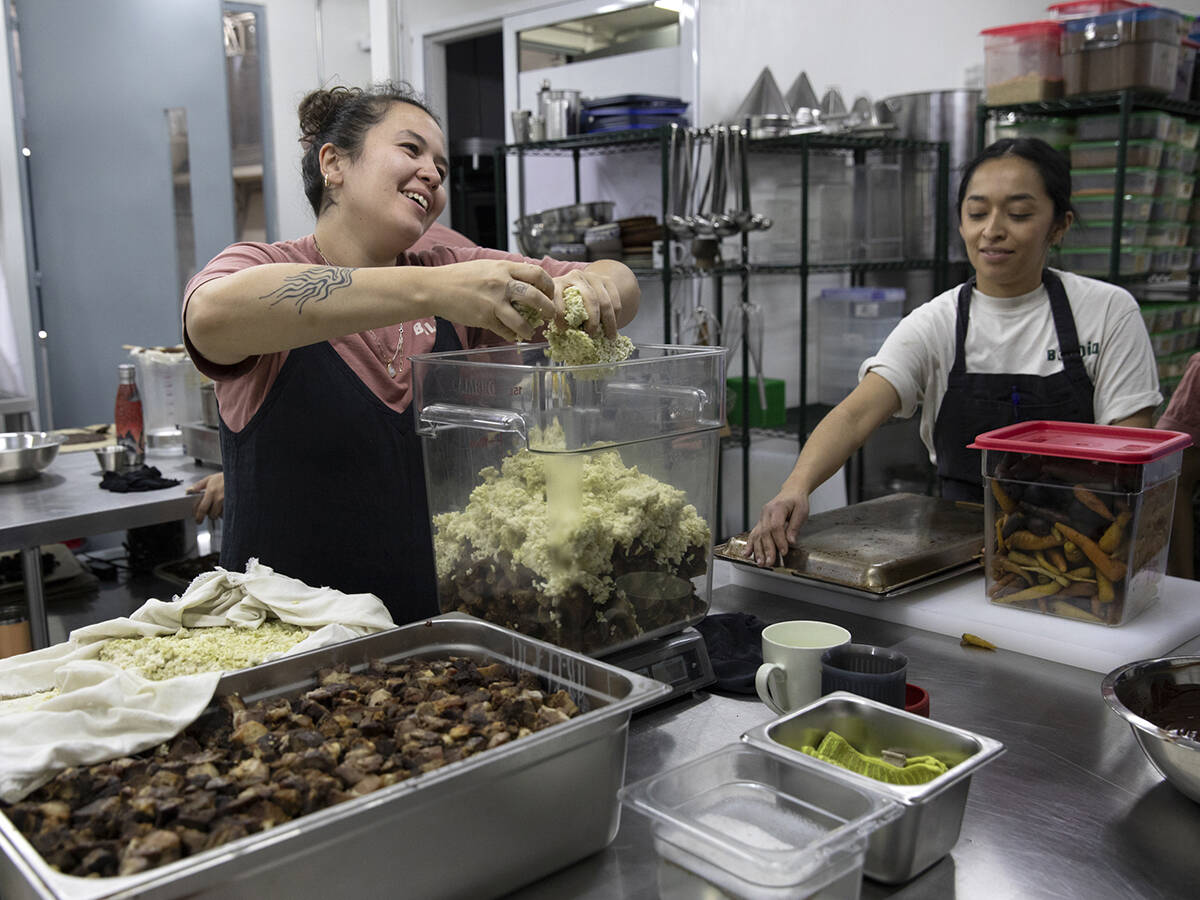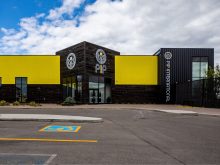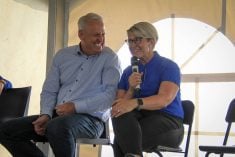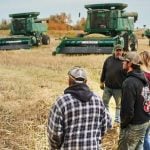ROSTHERN, Sask. Ñ As the only lawyer in Rosthern, Marianne Kramchynsky has seen first-hand the fallout from the continuing BSE border blockage.
“I’m seeing a lot of land changing hands now,” she said from her law office.
Through farm auctions and her real estate legal work, she has noticed “some fairly large operations are going out of business.”
About 20 kilometres southeast and across the South Saskatchewan River, her husband Bernie is watching the problem from another perspective as his farm’s herd starts calving this month.
Read Also

Restaurant blends zero waste, ancient farming
A Mexico City restaurant has become a draw for its zero-waste kitchen, which means that every scrap of food and leftovers is reused for other purposes.
The 80-cow herd is a combination of Simmental, Charolais and Limousin owned by him, his brother and a nephew. The latter two work at off-farm jobs for a Saskatoon farm manufacturer, which Bernie said is paying better than the farm these days.
Some of Marianne’s clients are dealing with the federal Farm Debt Mediation Board and its lender mediation service, but those programs don’t always mean the farmer stays in business.
“They’re brutal in the exit strategies,” she said.
As a lawyer, she wonders how one judge in Montana can keep the American border closed to Canadian cattle. She doesn’t hold out much hope for the Canadian cattle producers who are fighting the closed border through the North American Free Trade Agreement either.
If the producers win their challenge, she added, the Americans will just ignore the ruling like they have several others.
While Marianne was raised on a grain farm in Meath Park, Sask., she didn’t choose it as a career. Before training as a lawyer, she was the town administrator in Rosthern.
Among her duties, she took on a 20-year personal lobbying mission to improve the town’s highway interchange.
Several people have died on the single lane highway between Saskatoon and Prince Albert, including Marianne’s first husband and her former brother-in-law. Work will begin on improving the interchange this summer and the government has just promised to begin twinning the highway.
That is not her only volunteer activity. This year Marianne is secretary-treasurer for the Rosthern Lions Club, a member of the town’s transit committee for the disabled and active in many aspects of the Roman Catholic church, including chair of the stewardship committee and pastoral council for the diocese of Prince Albert and a member of the parish council and Catholic Women’s League of her local St. Odilon church.
Bernie is just as busy. He looked at the March calendar in his kitchen and said he was out at meetings every day but six that month.
He and Marianne volunteer to work every Thursday at the charity bingo in Alvena, Sask., and help with the local blood drive.
He is president of the Rosthern Lions Club, president of the community centre in Alvena, chair of the Rosthern Town and Country Fair and a member of the church’s finance council, the Alvena Co-op board and the Rural Municipality of Fish Creek council. And that weekend he was in a hockey tournament.
Whew.
Bernie said his life is so busy because people who want to get something done ask the person who has 10 things to do to get the 11th done.
Mariannne added: “I’ve learned I’ve got some talents that help organizations. You’ve got to give back.”
In between their meetings, the Kramchynskys also farm. Marianne does the books and grows a large garden, canning most of the produce.
Bernie raises grain for feed but mainly tends their cattle and sheep. The fall rye he has in his bins is worth only 52 cents a bushel, which he said won’t buy him a litre of gasoline.
However, he said he is better off than a neighbour who earned only seven cents a bu. after drying his grain. Bernie said farmers are price takers, whether for inputs or their products.
“You pay the freight whether you sell or buy.”
When BSE made his older cattle and sheep worthless, he turned to butchering some and selling the meat at the farmgate.
Of six siblings, Bernie said 21Ú2 are still farming. He owns 85 acres on the west side of the river and a quarter on the east side and farms another half section with family. Of Marianne’s three siblings, only her brother farms. Marianne’s two daughters from a previous marriage are both in university in Ontario, although she expects they will return to Saskatchewan to work. Neither is interested in farming.
Bernie plans to keep farming even though there’s no money in it because he likes being his own boss.
“I’ll know by 55 whether I can continue farming. (If my arthritis stops me) I’ll let the boys have it.”
Marianne would like to get out of law by the time she’s 65. However, she noted that Rosthern’s former lawyer worked until he was 84.
If both had more free time they would like to curl, which was how they met decades ago. Bernie would also like to be in a non-contact hockey league.
One hallway in their house is painted the colours of the Montreal Canadiens hockey team. Hockey sticks, pucks and pictures fill the wall.
Marianne matches Bernie’s hobby with her collection of decorative roosters and chickens.
For now, they fill their time with other activities while the trophies won in past bonspiels collect dust.
















